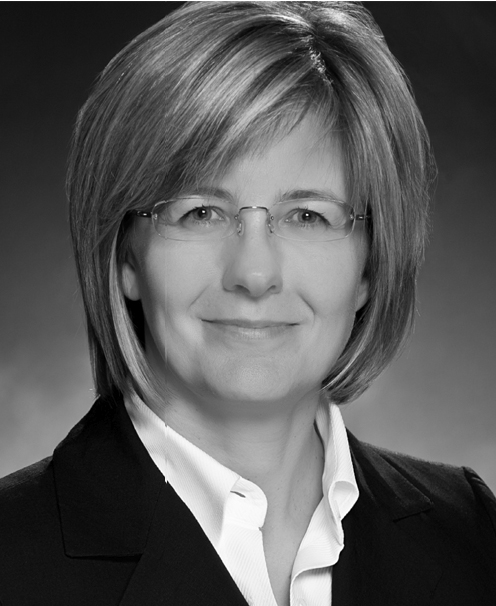 Hellen Siwanowicz, McMillan LLP
Hellen Siwanowicz, McMillan LLP
The Canadian Securities Administrators (“CSA”) in August 2013 published Consultation Paper 54-401, entitled Review of the Proxy Voting Infrastructure, which sought feedback from issuers, investors and other stakeholders on a proposed approach to address concerns regarding the integrity and reliability of the proxy voting infrastructure. The CSA identified two issues for further examination, which they believe have the most potential to impact the ability of the proxy voting infrastructure to function accurately and reliably. These issues are: (i) is accurate vote reconciliation occurring within the proxy voting infrastructure, and (ii) what type of end-to-end vote confirmation system should be added to the proxy voting infrastructure?
Vote reconciliation refers to the process by which proxy votes from registered shareholders and voting instructions from beneficial shareholders are reconciled against entitlements in the intermediated holding system.
End-to-end confirmation refers to a communication provided to shareholders that their proxy votes or voting instructions have been properly transmitted by the intermediaries to the tabulator and tabulated as instructed. Currently, there is no end-to-end confirmation system for beneficial shareholders, although we understand that efforts are underway to develop such functionality.
A fundamental feature of shareholder democracy is the right to vote on matters affecting the corporation. Historically, under common law, a shareholder of a corporation was required to attend a meeting in person in order to exercise the right to vote. By the mid-20th century, Canadian corporate legislation entitled shareholders to attend and vote at shareholders meetings by proxy. Currently, the vast majority of voting occurs through proxy voting.
Today, most publicly traded securities are held by intermediaries. All major financial institutions have adopted a system of centralized clearing and settlement services for publicly traded securities in order to increase trading efficiency and reduce risks in the trading, clearing and settlement process.
The clearing and settlement service settles the transfer of securities for participant financial institutions by crediting and debiting the relevant number of securities for each participant account if the aggregate trades by a participant results in a net change in the number of securities in that participant’s account.
A central securities depositary takes custody of securities certificates or maintains electronic records of securities holdings and maintains accounts for the participant financial institutions. In most jurisdictions, there will be at least one, or often more than one, layer of intermediaries between an ultimate beneficial shareholder and the depositary. This system of holding securities is known as the ‘intermediated holding system’. An important feature of intermediated holding systems is that while an intermediary’s own securities and client securities are booked to distinct accounts with the intermediary’s own account provider, client assets generally are ‘pooled’ in the client account and cannot be distinguished per client.
Under Canadian corporate legislation, only the registered holder has the right to vote, either in person or by proxy at a meeting. Shareholders who hold their shares in the intermediated holding system (as securities entitlements) are able to exercise their voting rights by relying on the system described in National Instrument 54-101 – Communication with Beneficial Owners of Securities of a Reporting Issuer (“NI 54-101”). NI 54-101 requires a reporting issuer, CDS Inc. and each intermediary that holds shares of a reporting issuer in the intermediated holding system to take certain steps in connection with a shareholders meeting. The purpose of the steps is to enable a beneficial shareholder to direct its intermediaries regarding how its shares are to be voted.
In Canada, approximately 97% of the intermediaries have contracted with a single service provider, Broadridge Investor Communication Solutions Canada (“Broadridge”), to perform the following functions, namely, to (i) identify the entities in the intermediated holding system that, for purposes of a meeting, have a right to submit voting instructions and direct intermediaries how to vote, (ii) deliver the appropriate materials to these entities and soliciting voting instructions, and (iii) collect the voting instructions and execute them by transmitting proxy votes to the official tabulator, which is usually the transfer agent of the reporting issuer.
Broadridge generates tabulation reports, also known as vote reports, that contain the voting instructions received from beneficial shareholders, aggregated by intermediary. Generally, Broadridge does not modify any of the voting data that is transmitted by beneficial owners through the intermediaries.
In practice, sometimes over-voting occurs because the information provided by one of the entities in the proxy voting system contains incorrect data. One source of such errors is the practice of securities lending. To illustrate, it is standard industry practice to treat the lender in a securities lending transaction as the beneficial owner of shares on loan with an entitlement to vote. However, a vote for the lent shares would not be submitted by a member of The Investment Industry Association of Canada without receiving a proxy from the dealer that borrowed the shares allowing the lender dealer to vote the lent shares. There is concern that this practice creates an operational risk that beneficial shareholders may be able to submit votes even if they are not entitled to do so.
The CSA conducted a roundtable discussion in January 2014 at which representatives of various industry participants discussed the integrity of the proxy voting infrastructure. What became clear from this discussion is that while the proxy voting infrastructure may have generally functioned adequately in the past, shareholders now expect more accuracy and transparency. Both of these objectives will require further study and a collaborative approach to devising appropriate solutions.
Hellen Siwanowicz is a Partner at McMillan LLP.